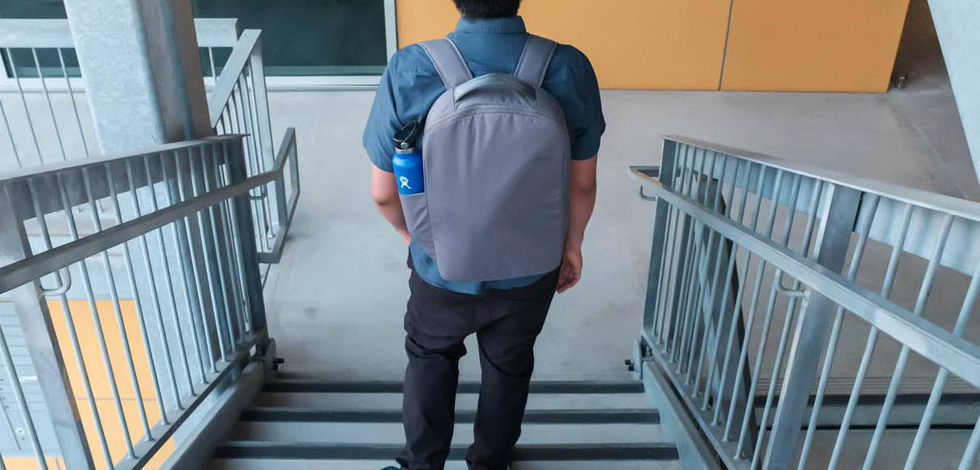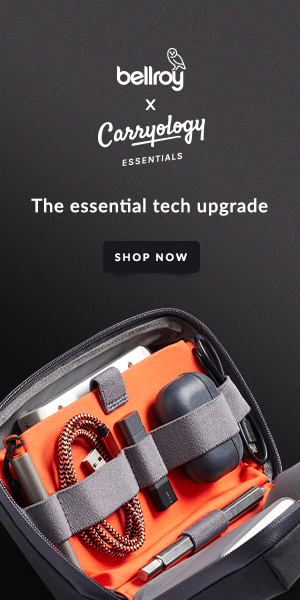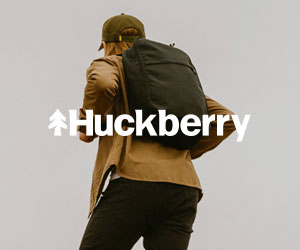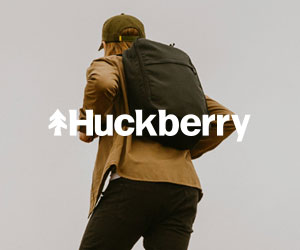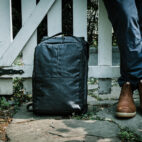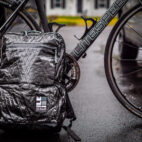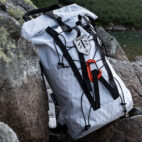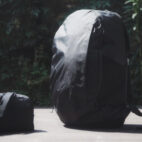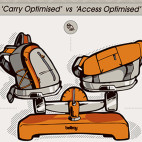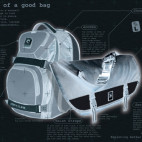Incase Bionic: The Most Well-Rounded Sustainable Carry System?
As far as sustainable carry and the materials available for their construction, it feels like we are on the cusp of a new dawn; an era where bags made from recycled materials can perform as well as people need, at a price that won’t break the bank.
But one thing that’s still incredibly hard is to find a cohesive EDC ‘system’ in sustainable fabrics — a pack, laptop sleeve and EDC pouch all in the same vibe and color, designed to work together.
In fact, I’ve only discovered two. You can go with the Bellroy Classic Backpack, Pouch and Sleeve in Marine Blue. Or choose the upcycled route with Freitag and their backpacks, sleeve and pouch in truck tarp.
Well, two options… until now. Enter the Incase x Bionic collection. A super minimal collection all very clean, cohesive and kinda cool. At a price that’s incredibly hard to beat.
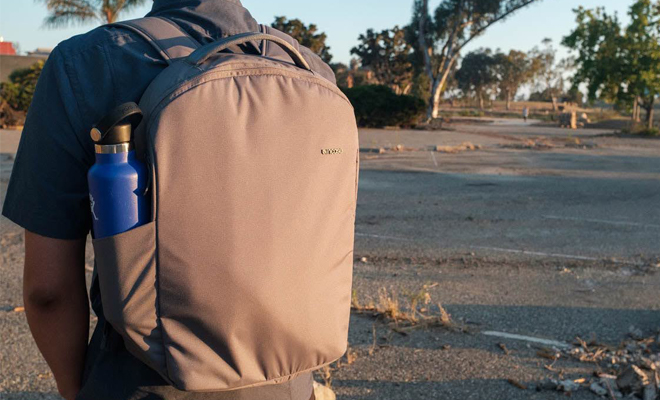
Meet Bionic
Bionic is a textile company formed by Tim Coombs and Tyson Toussant and in 2010 musician Pharrell Williams joined as a Creative Director. Their mill takes coastal and marine trash and recycles them into plastic textiles. Every year, 8 million metric tons of plastic ends up in the oceans and 91% of it goes unrecycled. Seeing the troubling trend of polluted waters and bulging landfills, Incase partnered with Bionic to create a carry collection that aims to remove waste from the oceans so it can be repurposed into everyday products you’re likely to carry anyway.
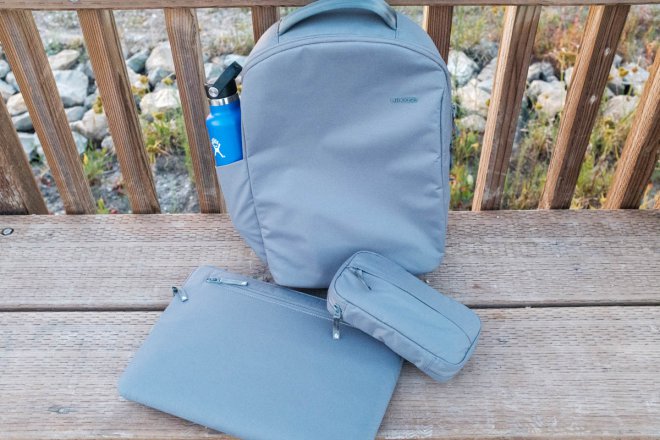
The Incase x Bionic system consists of three items, each usable and purchasable independently. They come in two colorways (ocean green and steel gray) and combined will cost you $200 USD.
Bionic Commuter Backpack
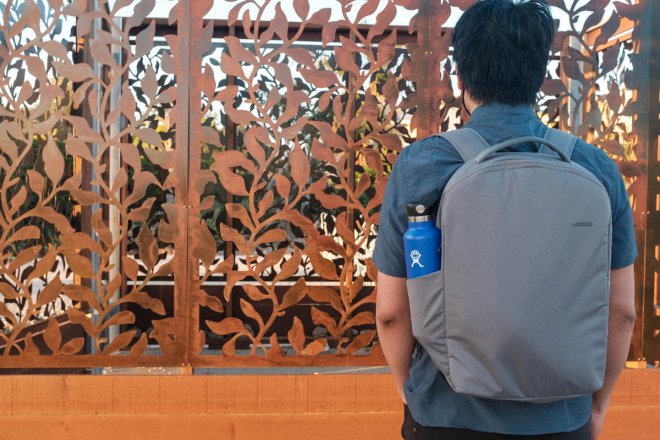
The backpack is the centerpiece of the collection. Even among the Incase Compact City series, this is one of the sleekest (looking and physical size) backpacks I’ve used from Incase. The ripstop material is mostly matte but there is a very, very slight sheen to it that’s appealing. The weight of the material is quite thin; I am not sure of the denier but abrasion resistance does not seem to be an issue. It’s really a no-frills backpack, which adds to its minimalist aesthetic.
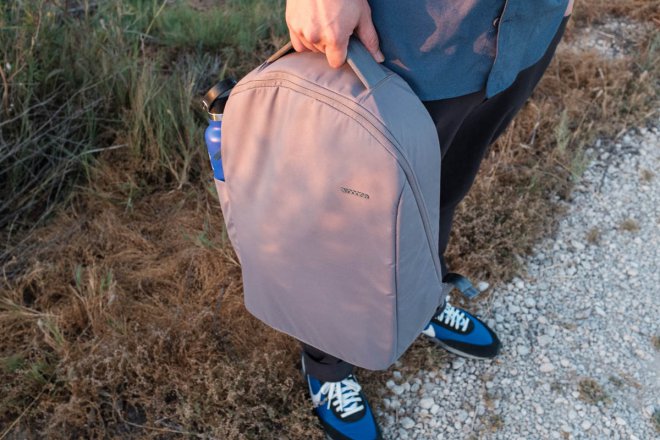
It features a single water bottle pocket on the side, which lays flat when not in use but expands when needed. Inside, you’ll find a small admin panel with enough room for a notebook, three pens and two additional slots for business cards or small accessories. The laptop compartment supports up to a 16″ MacBook Pro. It is slightly suspended and the bottom is padded but additional protection, like from a sleeve, is recommended.
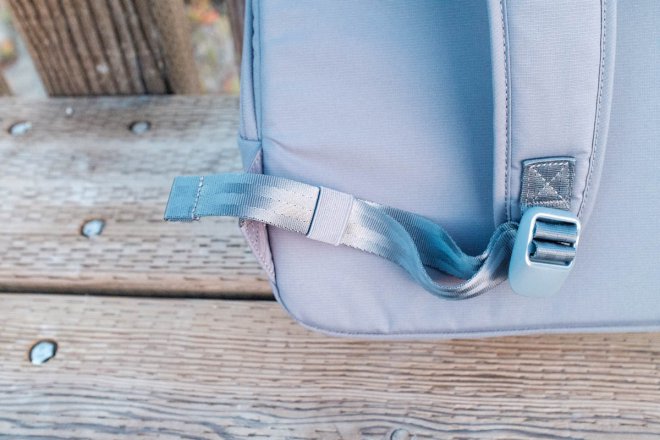
There is a generous top grab handle that is lightly padded and the shoulder straps have nice slack retention but it lacks a chest strap. However, with a pack of this size, I don’t think the stability is really needed. Believe it or not, the pack is made from twenty-six plastic bottles. It’s priced at $99.95.
Bionic Compact Sleeve
While the laptop compartment of the backpack is compatible with a 16″ MacBook, the suspension and padding leaves something to be desired. Enter the Compact Sleeve. It’s constructed of an equivalent of seven plastic bottles recovered from the ocean (pretty cool!). It officially supports a 16″ MBP as well but when I tested it with mine, there was nearly an inch of room around the top. An older 15″ MBP which is thicker and heavier fits as well, but also with room to spare. I don’t think this can support a 17″ computer but I certainly appreciate the extra breathing room. On a related note, there’s a 13″ option too for smaller tech.
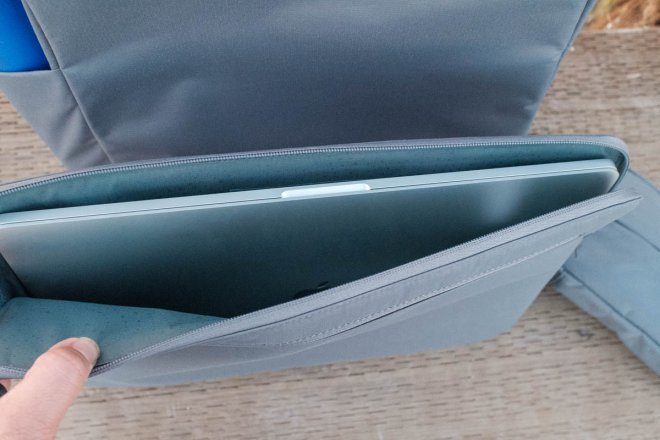
The sleeve is nicely padded while maintaining a sleek, no-frills approach. I much prefer this sleeve compared to my standard Incase sleeve from about ten years ago that feels like a pillow now. There’s a single large accessory pocket on the front which seems large enough to fit full-sized documents. The zipper pulls for this pocket as well as the main compartment are really simple but have the Incase and Bionic logos, one on each side. The sleeve retails for $49.95.
Bionic Accessory Organizer
Rounding out the system is the tech pouch. Like the sleeve, it’s also made from the equivalent of seven plastic bottles recovered from marine waterways. It features a zippered front accessory pocket as well as a generous bi-fold main compartment that lays flat. Like the rest of the collection, the padding is minimal but what it lacks in cushioning, it makes up for in versatility in pocketing.
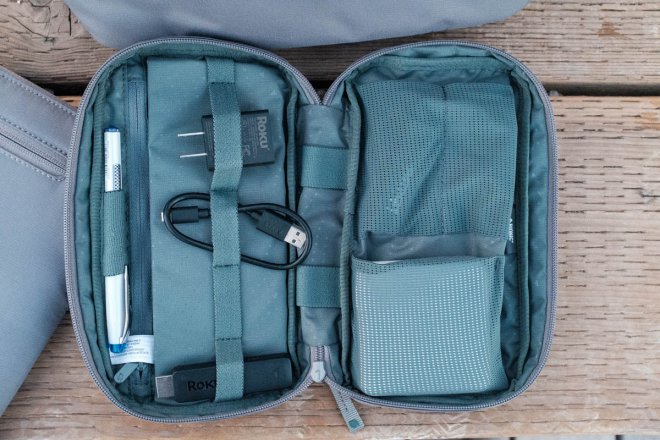
I already mentioned the external pocket but once you get inside, Incase has done a really great job with having a home for every accessory you might EDC. There are mesh pockets, elastic bands for cables, a pen slot, wide sleeves for battery banks and another zippered slot that runs the length of the pouch. I am used to carrying much larger tech dopp kits but I loaded the Incase up with everything I thought I might bring on a journey and it still had room to spare. The lay-flat design makes getting to your items really easy and I appreciate how compact it is when closed up. It retails for $49.95.
Thoughts on the collection
When I first heard of this collection, I was really excited. I am not an aggressive environmentalist but I feel like my generation is perhaps the most aware of global warming issues and we are in a very fortunate position where taking a slightly more eco-conscious approach to the products we purchase is not asking us to sacrifice performance.
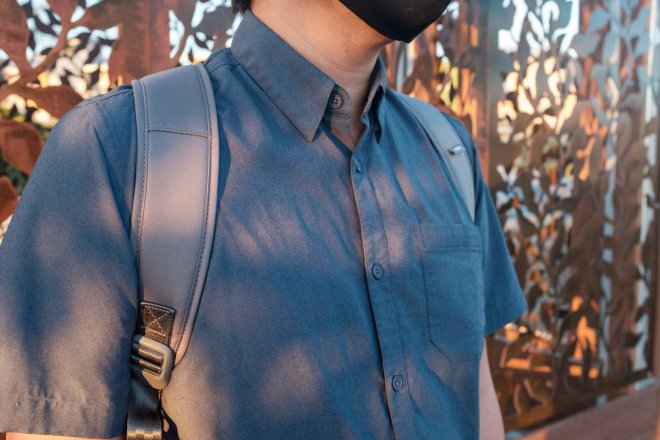
I think that’s the key hurdle that needs to be overcome: people are willing to buy repurposed or recycled goods but they are only willing to pay a small price premium and it must perform well.
I really like how well-rounded this collection is. The backpack is Incase DNA through and through while having a unique look due to the Bionic textile yarn. It’s a minimal backpack that would work in any school or work environment. The sleeve is well padded and generously supports a 16″ laptop. Finally the tech pouch, perhaps my surprise favorite piece, somehow encourages you to pack less while having a home for every item you might want to bring.
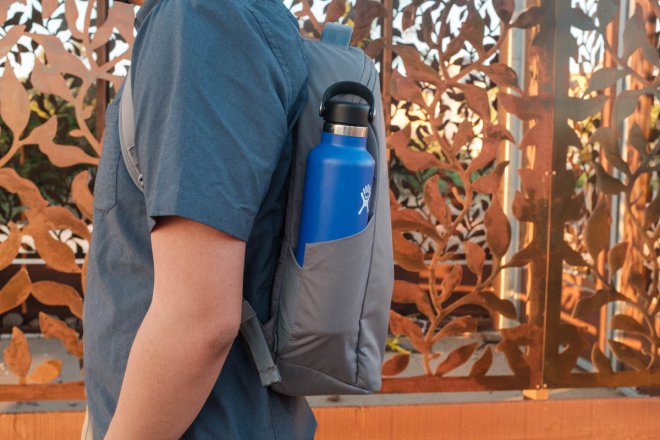
I think this system is perfect for most users who EDC a normal amount of gear and are going to the office or campus. It’s for someone who typically carries a laptop, cables and chargers, a pen and notepad, and maybe a few books.
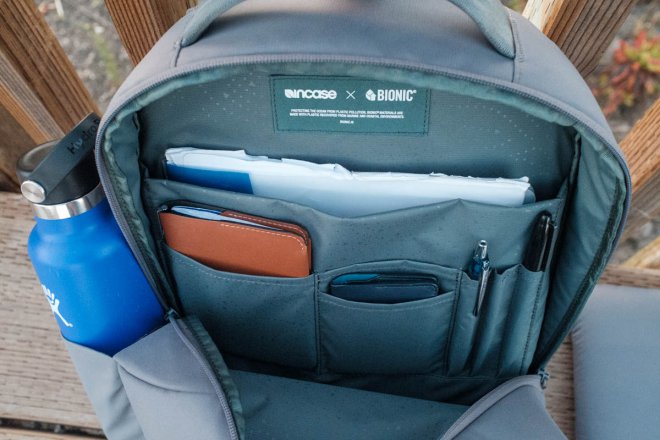
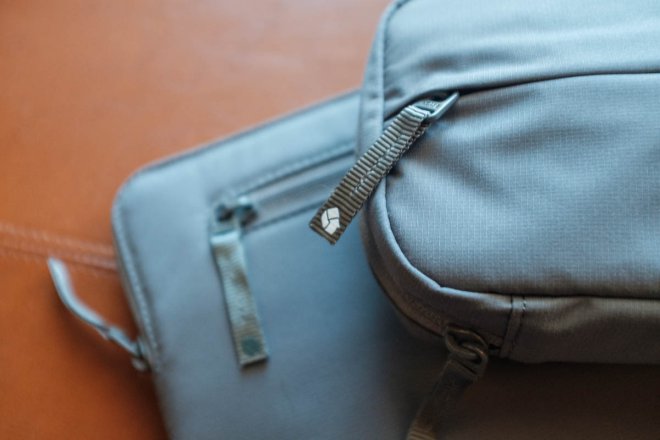
Wrapping up
Incase made a great decision partnering with Bionic for a collection. They found a partner that specializes in recycling plastic waste in the oceans into textiles that can be used in the production of everyday carry accessories. The user gains a quality system that is designed well, is durable, and takes some waste out of the oceans. If there was a V2, I’d like to see a deeper water bottle pocket and an extra accessory pocket, but overall I think the system would fill the needs of many, with everything working together nicely.
This article was sponsored by the fine folks at Incase. Big thanks for the support!





 Carry Awards
Carry Awards Insights
Insights Liking
Liking Projects
Projects Interviews
Interviews
